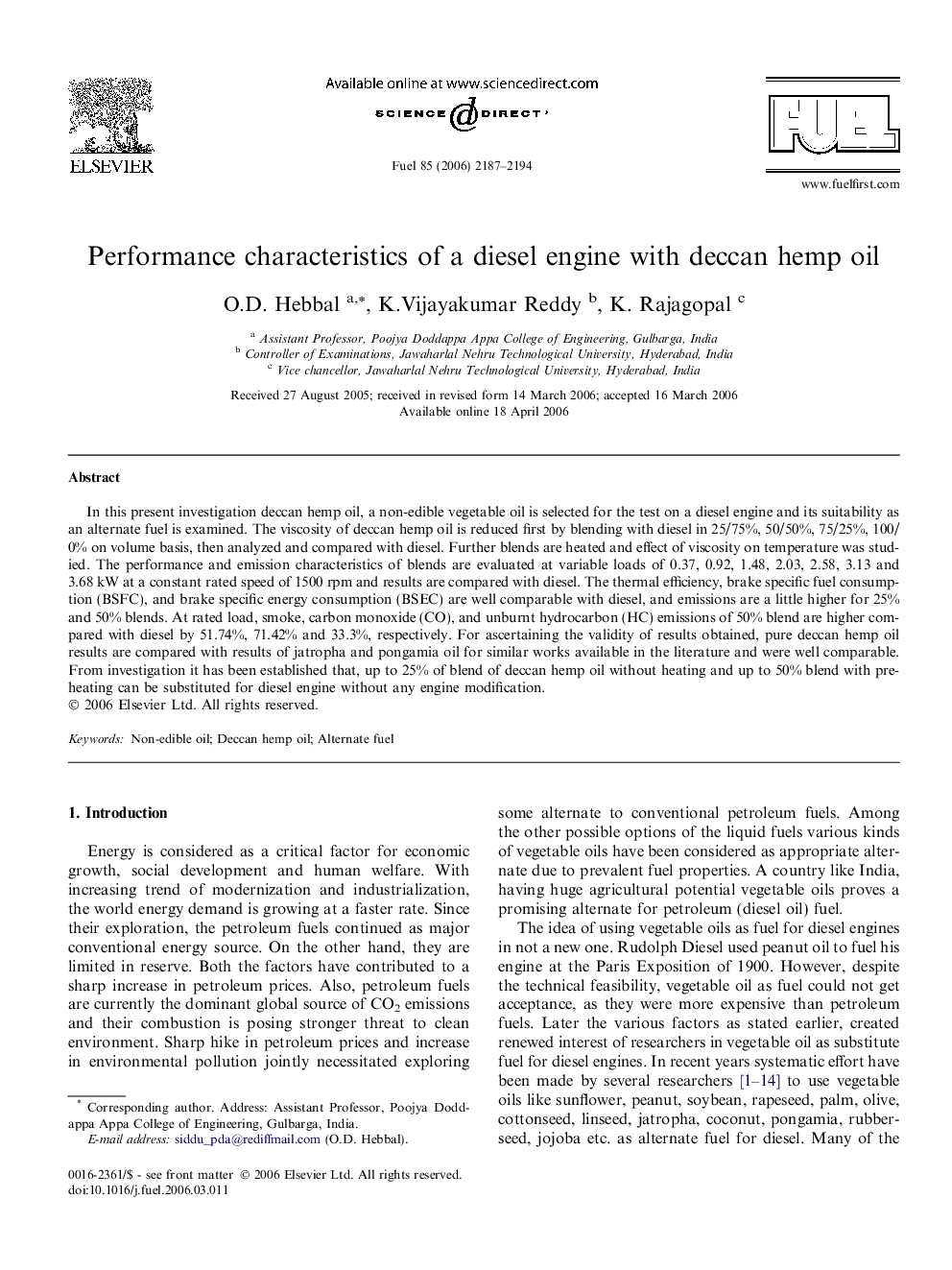| Article ID | Journal | Published Year | Pages | File Type |
|---|---|---|---|---|
| 208442 | Fuel | 2006 | 8 Pages |
In this present investigation deccan hemp oil, a non-edible vegetable oil is selected for the test on a diesel engine and its suitability as an alternate fuel is examined. The viscosity of deccan hemp oil is reduced first by blending with diesel in 25/75%, 50/50%, 75/25%, 100/0% on volume basis, then analyzed and compared with diesel. Further blends are heated and effect of viscosity on temperature was studied. The performance and emission characteristics of blends are evaluated at variable loads of 0.37, 0.92, 1.48, 2.03, 2.58, 3.13 and 3.68 kW at a constant rated speed of 1500 rpm and results are compared with diesel. The thermal efficiency, brake specific fuel consumption (BSFC), and brake specific energy consumption (BSEC) are well comparable with diesel, and emissions are a little higher for 25% and 50% blends. At rated load, smoke, carbon monoxide (CO), and unburnt hydrocarbon (HC) emissions of 50% blend are higher compared with diesel by 51.74%, 71.42% and 33.3%, respectively. For ascertaining the validity of results obtained, pure deccan hemp oil results are compared with results of jatropha and pongamia oil for similar works available in the literature and were well comparable. From investigation it has been established that, up to 25% of blend of deccan hemp oil without heating and up to 50% blend with preheating can be substituted for diesel engine without any engine modification.
